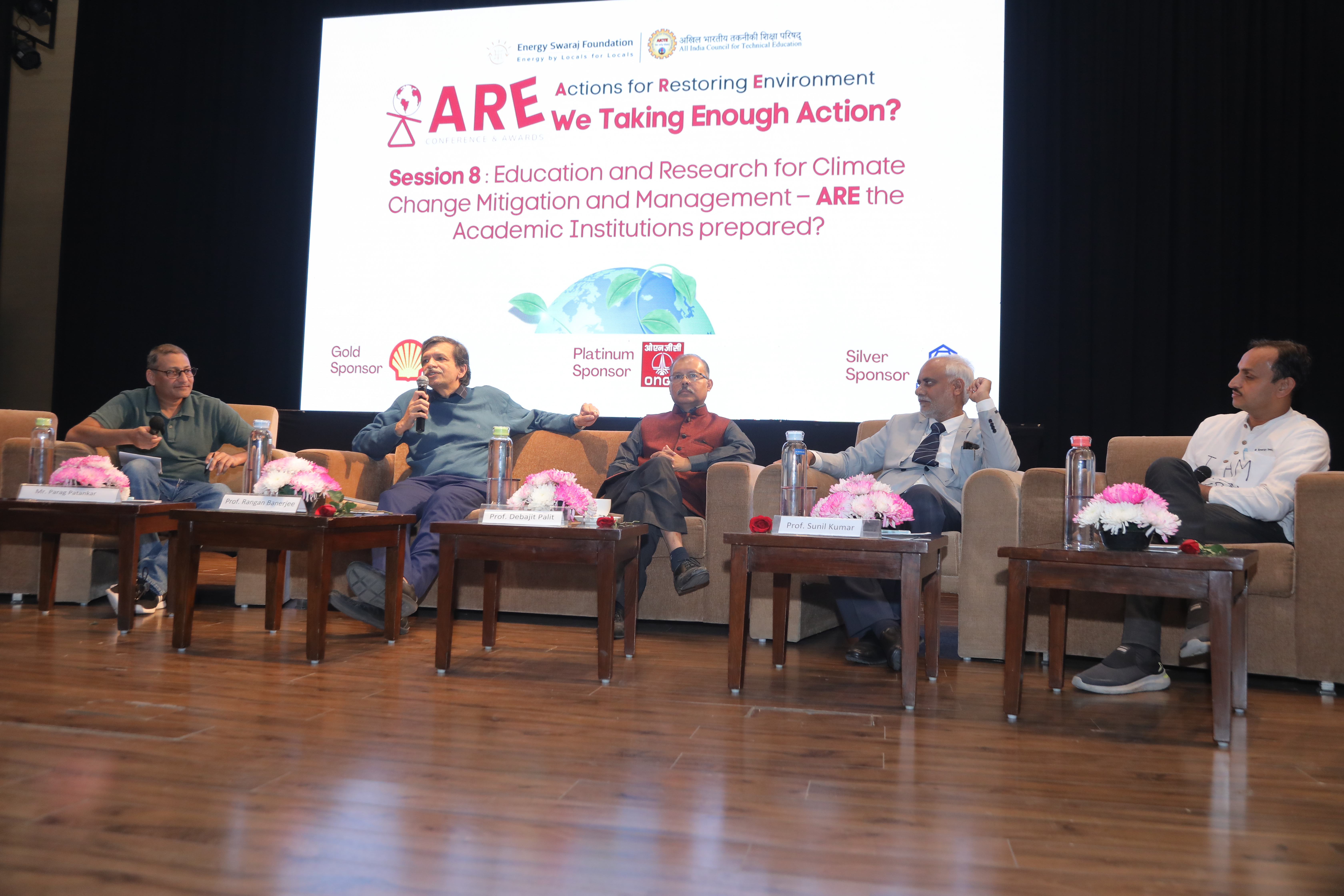Session-wise summary
Session 1: Inauguration of the ARE conference and awards
The inaugural session was started on the note that Planet Earth has the most evolved species. Air, Water, Soil, Forest, important elements of nature and for human and other species survival, are getting polluted due to human activities.
One has to adopt green solutions. As stated by Anurag Sharma, Director offshore (ONGC), many renewable solution implementations have been innovated and done by ONGC like hydrogen technology, methane initiative, CO2 capture technology and clean cooking. At the end and as a voice of today’s youth, Miss Siya has requested the older generation to lead them towards the right direction to take appropriate climate corrective actions so that the youth can become a catalyst for change instead of victim.
This session has put light on the seriousness of the need of gathering for thinking about climate change and action points that could be taken. For a self-realisation and eye-opener, a 200 kg sack of CO2 was unveiled. This amount of CO2 is emitted by each person per month leading to global warming which will last upto 200-300 years.
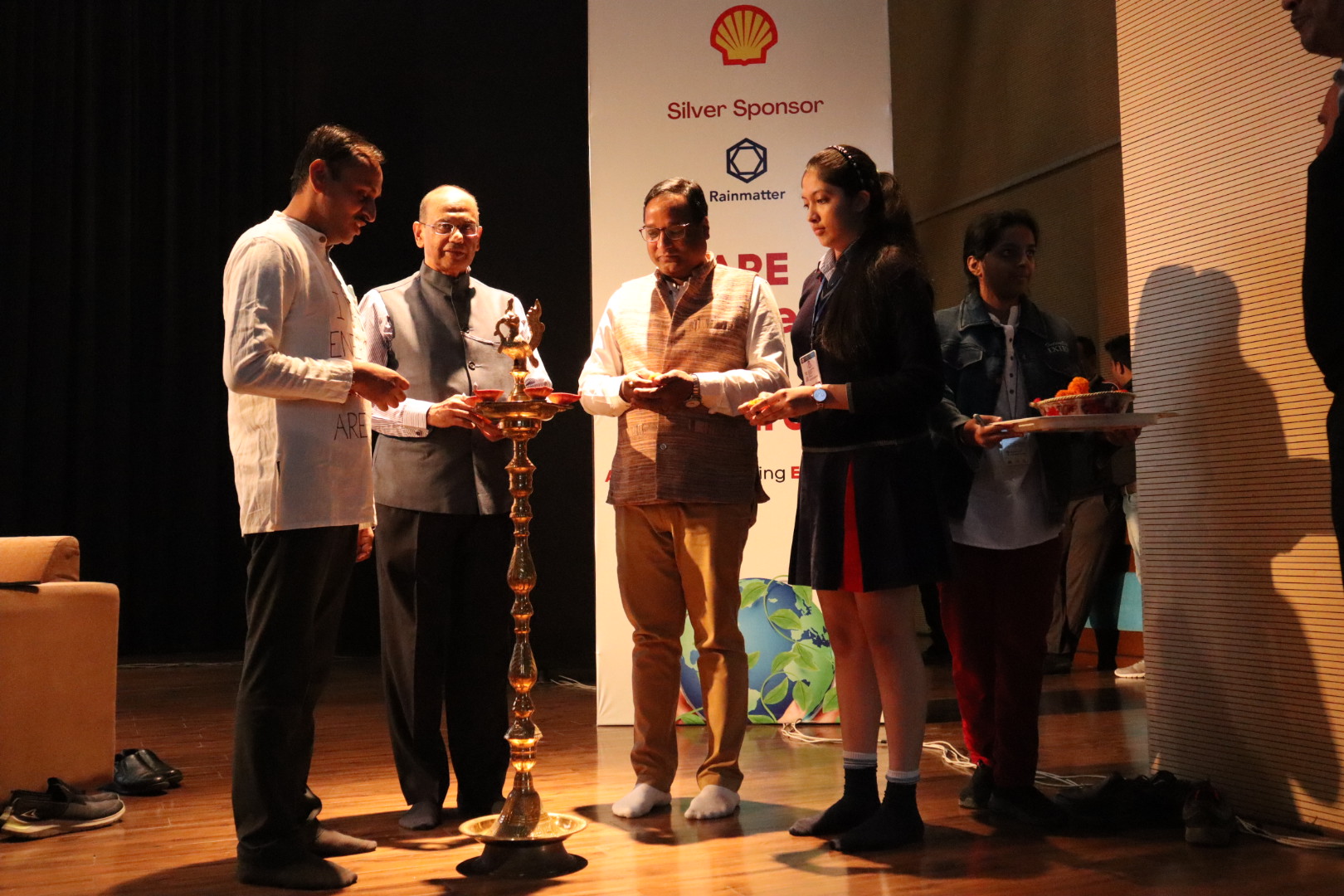
Session 2: The Cascading Cycle: Warming world – Rising energy demand – Warming World - ARE we heading the Right Direction?
Everything requires energy. From small to smallest task to bigger one every action requires energy and in today's world maximum energy requirement is being fulfilled by carbon base fuels. All these carbon based fuels are responsible for global warming. The development and economic growth as a whole depends on these fuels that drive the life of today’s world. Changing the lifestyle and dependency on these fuels for the sake of climate cannot be changed in one night.
The world economy is walking blindlessly behind the GDP however, in between the path to it, has degraded the natural resources, water, air and soil that are precious to human life. However, it is believed that without interception of any policy, an appropriate action cannot be performed and to do so a tax penalty should be imposed for those who have crossed the optimal point of growth. It's a bigger challenge but different stakeholders have to come together to think about the complex solution and work on it. This has to do with an urgency as very much less time has left, which was seen through unveiling the Climate Clock.
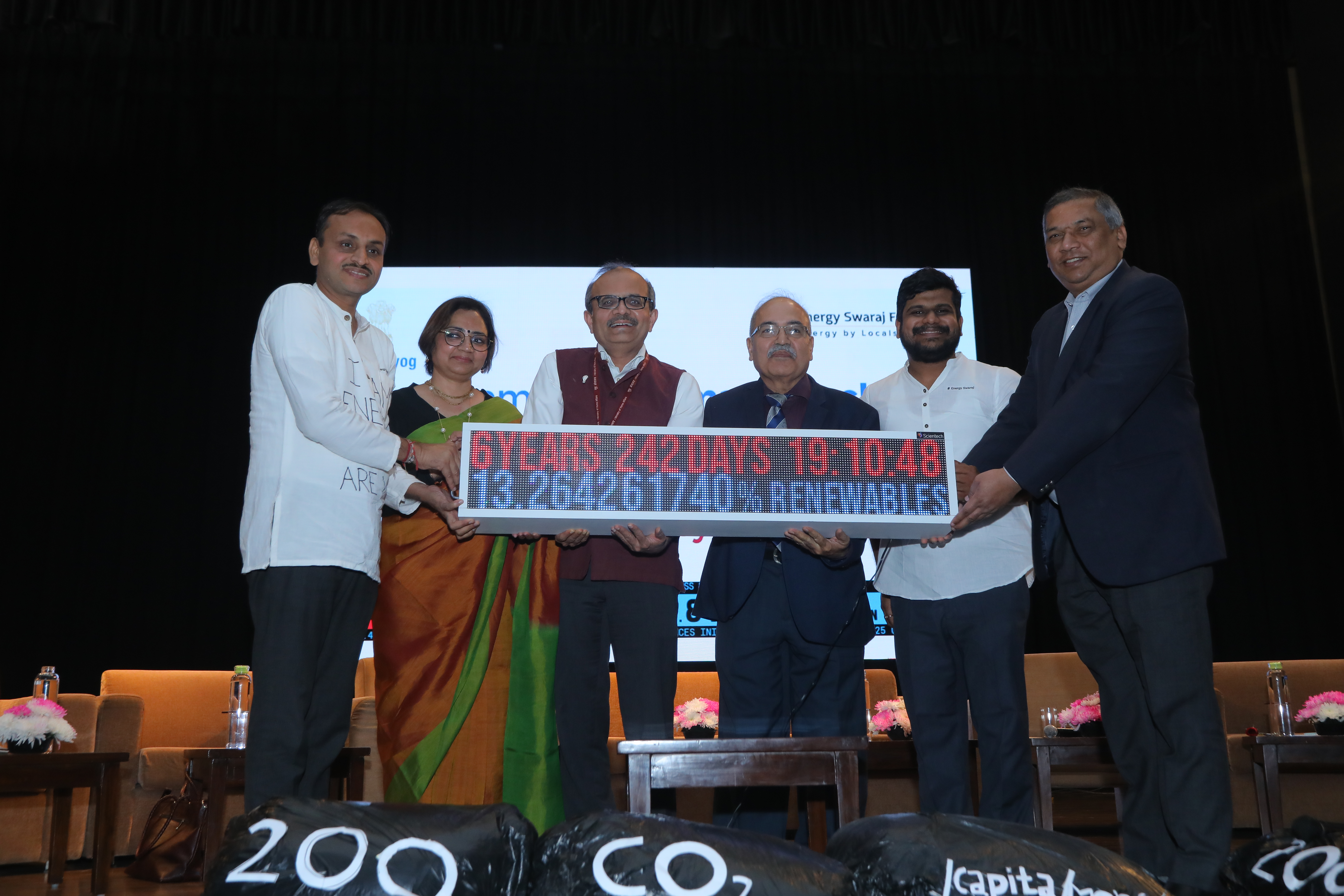
Session 3: Policies and Programmes to Secure Climate and Energy security to the nation – ARE the Government initiatives pragmatic enough?
Governments have learned from past implementations of initiatives like fighting for poverty or illiteracy to execute the implementation of action to be taken for climate change correction. Through policies and initiatives, the government is not only intending to act themselves but are for gathering people under one roof to act together.
Apart from this many enterprises or livelihoods depend on carbon based processes or materials. The policies or programmes have to take care of people who are associated with such livelihoods by providing them new green based livelihoods. But until completely shifting the circular economy to green based would not be possible. However, funds and finances can create a big gap to implement this initiative in such a short time.
It is concluded that a self-realisation for the energy usage and awareness about climate change is the need of the hour and would fasten the actionary plans. A portal was launched named Energy Swaraj- Portal for Action and Learning (ES-PAL), which will take people to become energy literate and contribute to climate correction by taking some action.
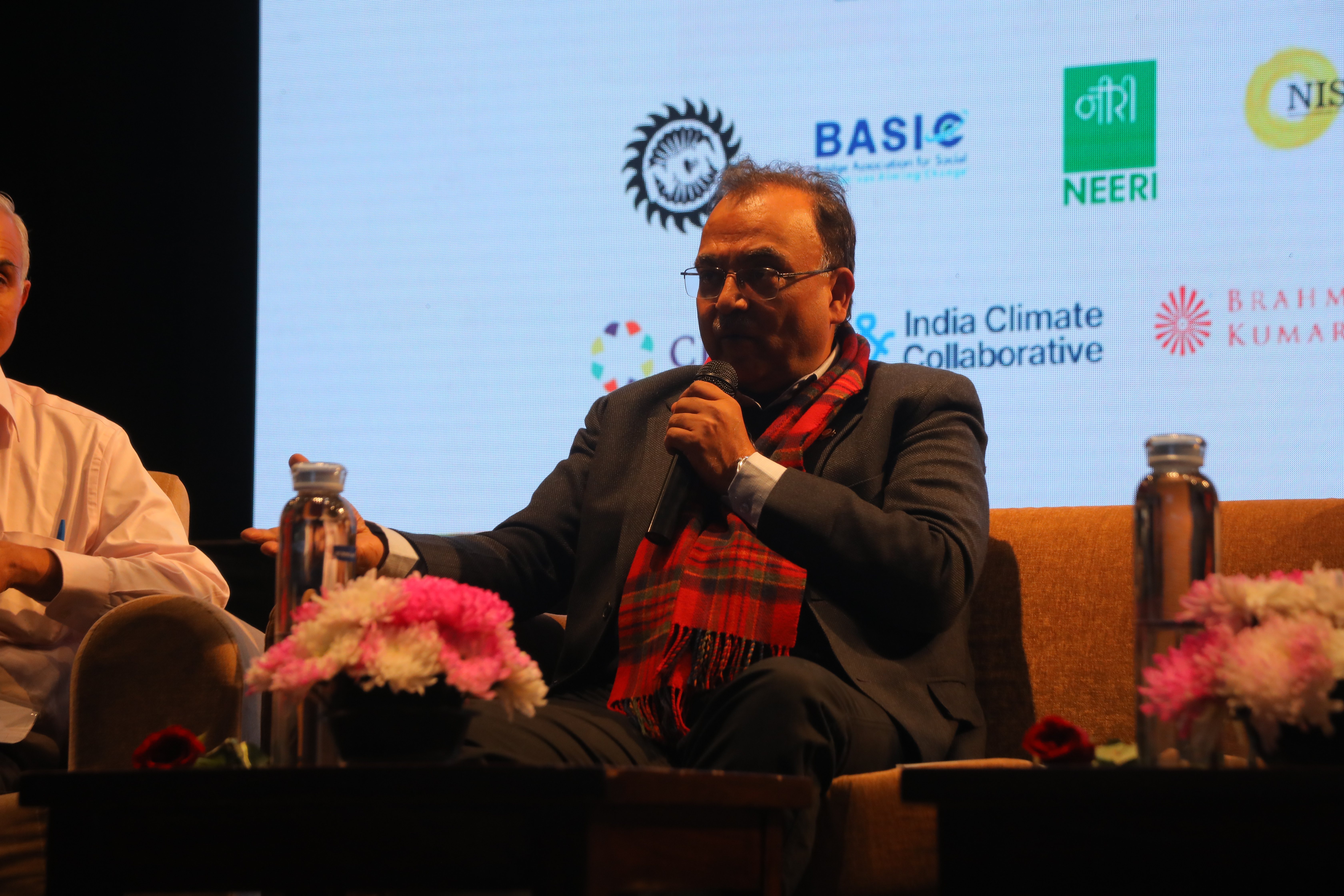
Session 4: Enhancing awareness and preparedness of the climate change to the grassroot level - ARE the NGOs sensitising the communities enough?
Civil society (NGOs) play an important role in taking national policies and its benefits to local communities. They train rural people to understand these policies and its process. Not even that they also bridge the gap between the government perspectives on the policies and people’s needs. On the other hand, rural communities are the best friend of Nature. They live with and for Nature. They can be the best people who can help a lot in environmental conservation as they can listen and understand Nature's voice. However, Civil society has the ability to go to rural areas, talk to people, and can train to lead towards green development.
There are many entrepreneurship opportunities as their livelihood in rural areas regarding solar energy, farming (organic), natural dying, textiles and food which need to be promoted. On the other hand, there is a need to bridge the gap between science and rural youth leadership quality. However, the contribution of rural communities for climate change is less as compared to urban areas but there is a need to educate rural people about the new technologies for sustainable enterprises and make aware them about its climate implications.
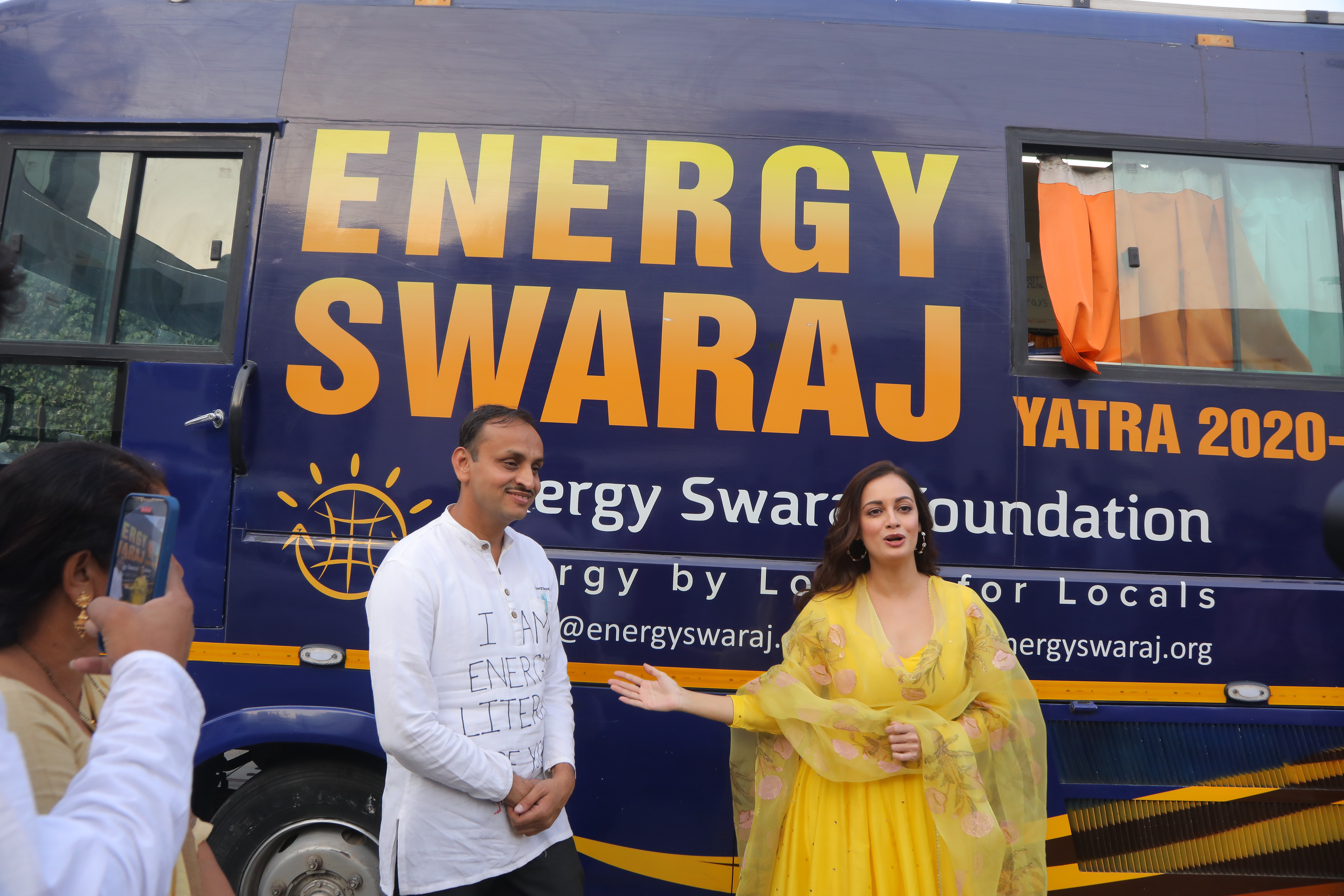
Session 5: Mobilising masses towards Sustainable Actions through Spiritual Sensitization – ARE the Spiritual Organisations doing enough?
Humans have degraded the environment unconsciously through their uncontrollable action and usage of natural resources. Spirituality or self awareness can lead to understanding the actions that are harming Nature. Since ancient times, people have worshipped natural resources like water, soil, air, and sun to get the sense of their importance and to pay respect to Nature. But with growth and development and modernization, humans are losing consciousness towards Nature. Climate change is the byproduct of the unconscious human mind. There is a need to meditate not for personal stress but to become climate conscious. There is a need for new ideas, new philosophies for implementation sustainability. There is a need to connect religion with social work to propagate the solution for climate change.
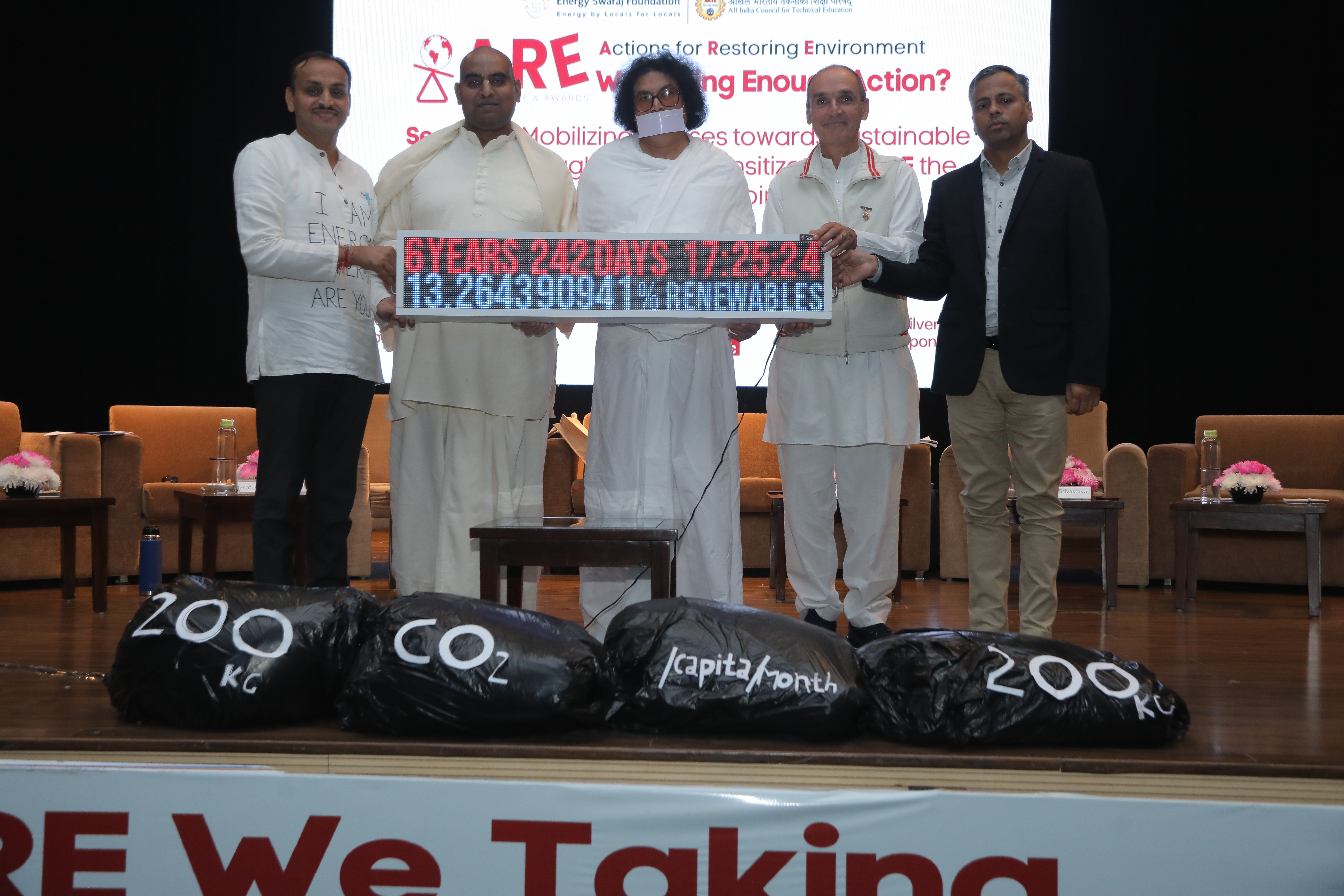
Session 6: Media's effectiveness in informing and influencing societies in climate correction - ARE media giving enough space?
Media can play an effective role for influencing societies in climate correction. There is ample space in the media sector for passing the climate news. However, only those news gets the finances that are highly viewed by the public and climate news has very less audience. To influence the audience towards climate correction, the media have to present climate related information in a more dramatic and attractive way that will touch their heart.
Social media can be used as a medium to pass on the information and today's youth can use it very effectively. As a concluding point, the panel brainstormed about the need for decentralisation of the media. However, funding support is a big question for Independent Journalism.
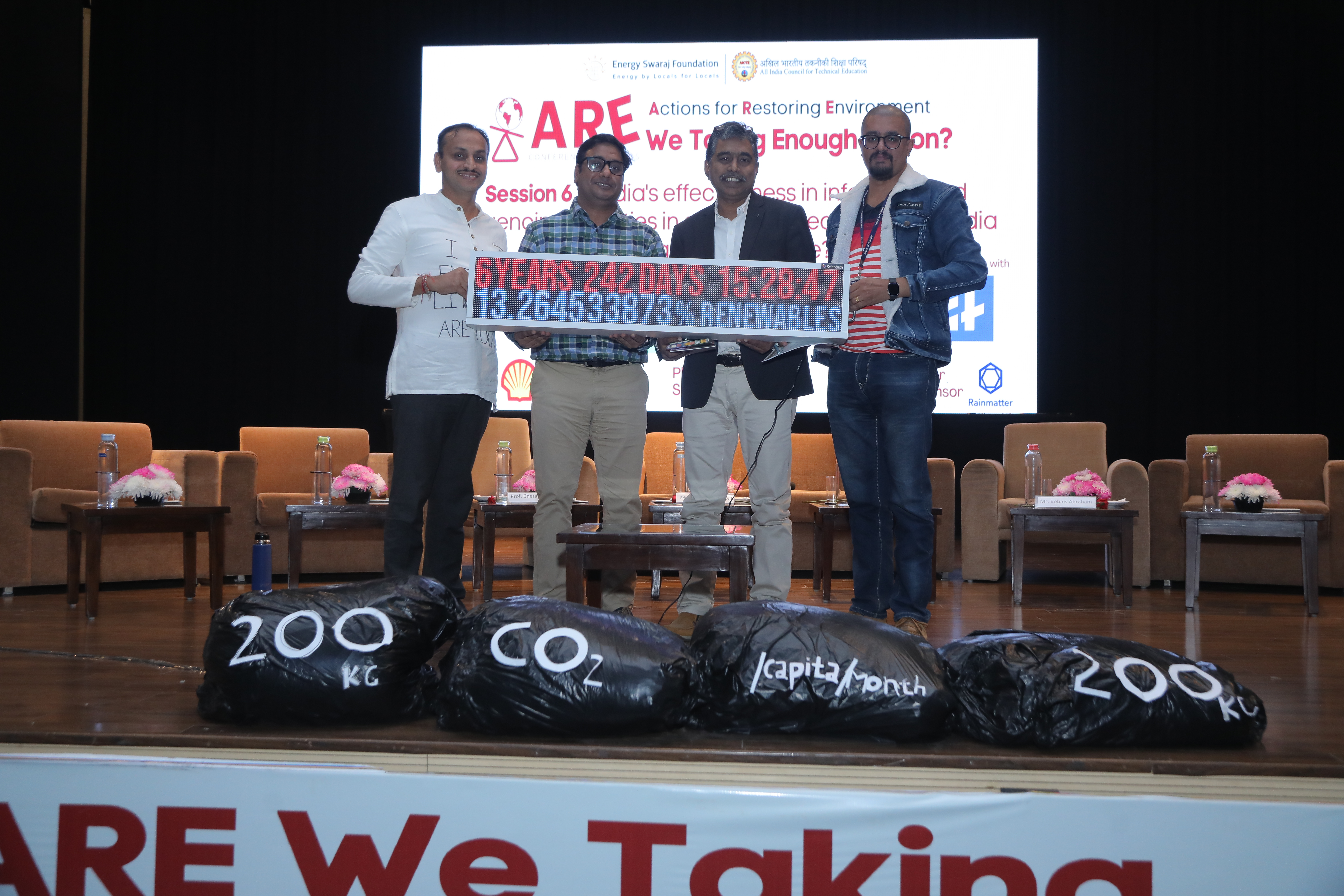
Session 7: Industries, their sustainability, environmental goals and outcomes - ARE they enough?
Industry sectors are major energy users and so major sustainable goals revolve around it. To achieve the sustainable goals, there is a need to decarbonise the industries and include best practices as per the regulations of BEE. Renewable based innovations and handholding to use such technologies can contribute to achieve the net-zero targets. However, such technology will have financial implications and for this some mechanisms like carbon credit or green bonds can be implemented.
As a concluding point, the panel agreed that however, the climate change correction is not going at a fast pace but the industrial sector has the solution, mechanism to implement it and so has the finance for the same. What is needed to fasten up the correction process is to utilise the right technology and innovation at the right time and right place.
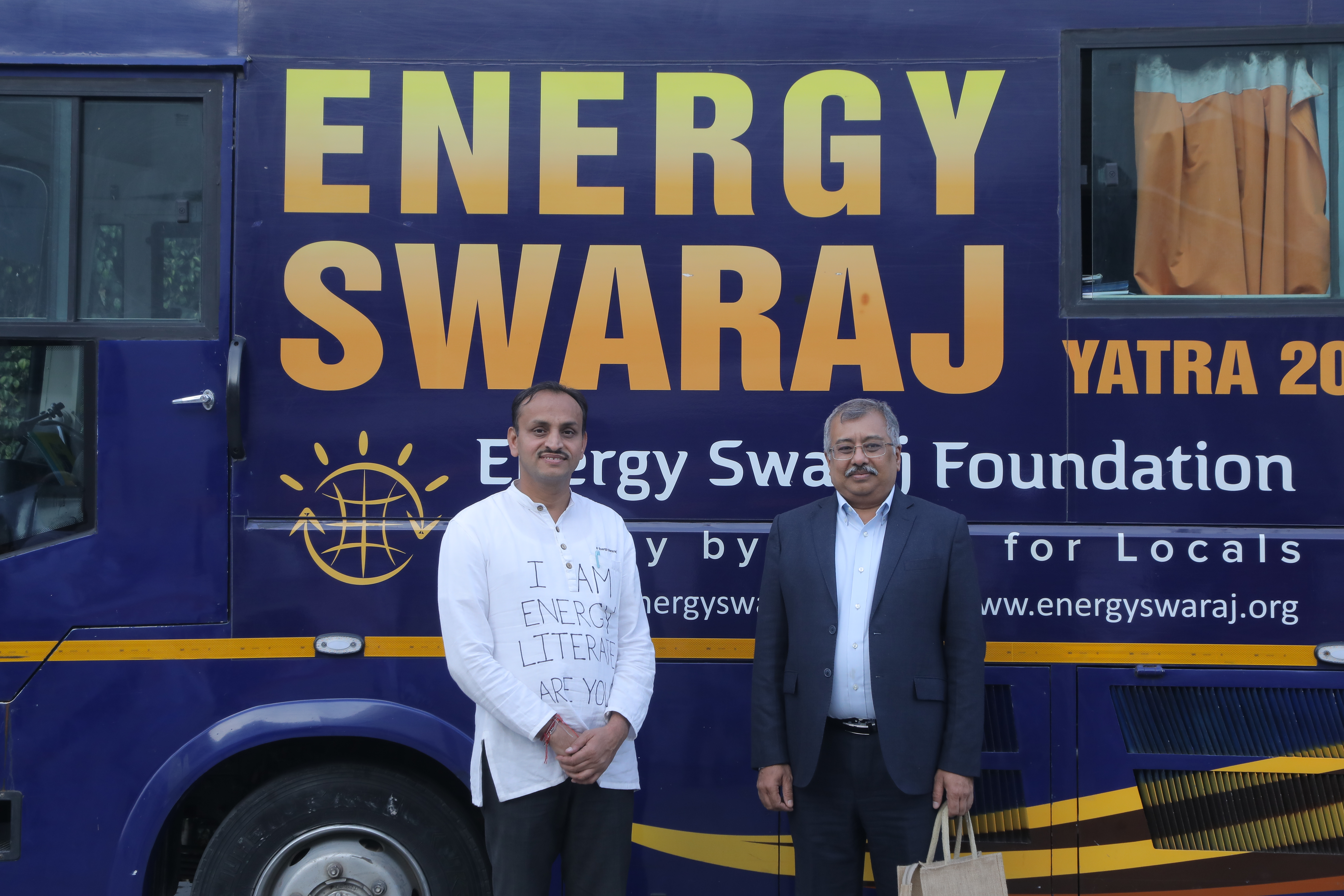
Session 8: Education and Research for Climate Change Mitigation and Management – ARE the Academic Institutions prepared?
Academic sectors is the sector from which major innovative ideas and research comes out. Therefore, students should be encouraged to find green technological solutions. They should be encouraged to become job creators instead of job finders. Researchers can bring different mechanisms to monitor the carbon footprints and showcasing such values in more self-explanatory ways. There are ample opportunities in the education sector to improve the existing solutions and implement them for climate correction.
Academic institutes have to bring in programs in their curriculum that teach the students about sustainable behaviour. As a concluding point, it was accepted to become first energy literate and then adopt or implement the solutions. Academic institutes can play an important medium for spreading awareness and consciousness about the impact of development on Nature.
